Английский язык для специальных и академических целей: Международные отношения и зарубежное регионоведение. Часть 1 - [13]
4. Anthony Charles Lynton Blair (born 6 May 1953) is a British Labour Party politician and philanthropist. Blair served as the Prime Minister of the United Kingdom from 1997 to 2007. He was the Member of Parliament (MP) for Sedgefield from 1983 to 2007 and Leader of the Labour Party from 1994 to 2007. Blair led Labour to a landslide victory in the 1997 general election, winning 418 seats, the most the party has ever held. The party went on to win two more elections under his leadership: in 2001, in which it won another landslide victory, and in 2005, with a reduced majority. In the first years of the New Labour government, Blair's government introduced the National Minimum Wage Act, Human Rights Act and Freedom of Information Act, and carried out devolution, establishing the Scottish Parliament, the National Assembly for Wales, and the Northern Ireland Assembly, fulfilling four of the promises in its 1997 manifesto.
5. James Gordon Brown (born 20 February 1951) is a British Labour Party politician who was the Prime Minister of the United Kingdom and Leader of the Labour Party from 2007 until 2010. He previously served as Chancellor of the Exchequer in the Labour Government from 1997 to 2007. Brown has been a Member of Parliament (MP) since 1983, first for Dunfermline East and currently for Kirkcaldy and Cowdenbeath.
After initial rises in opinion polls following Brown becoming Prime Minister, Labour's popularity declined with the onset of a recession in 2008, leading to poor results in the local and European elections in 2009.
On 10 May 2010, Brown announced he would stand down as leader of the Labour Party, and instructed the party to put into motion the processes to elect a new leader. On 11 May, he officially resigned as Prime Minister and Leader of the Labour Party. He was succeeded as Prime Minister by David Cameron, and as Leader of the Labour Party by Ed Miliband.
Later, Brown played a crucial role in the campaign surrounding the Scottish independence referendum of 2014, galvanizing support behind maintaining the union.
Unit I. UK: from Empire to Democracy
Unit I. UK: from Empire to Democracy
6. stockbroker belt (Human Geography) Brit — the area outside a city, esp. London, in which rich commuters (who traditionally vote for the Conservative Party) live
7. amour proper — a sense of one's own worth; self-respect, from French ‘love of oneself'
8. extortion racket — a criminal offense of obtaining money, property, or services from a person, entity, or institution, by use of intimidation or threats (here used metaphorically)
1. ... a 307-year-old union, which once ruled a third of humanity and still serves as a role-model to many;
2. ... it is the nationalists who have fire in their bellies;
3. . a narrow victory for the status quo;
4. . Scottish whingeing and freeloading;
5. It is, of course, possible that independence would cure Scotland's entitlement culture and revive its entrepreneurial side.
6. But their statist philosophies are more likely to drive Edinburgh's fund managers, . and other talented Scots south.
7. Independence would also impose one-off costs .
8. . that hardly suggests a Scottish administration straining at a leash held tight by Westminster.
9. The devolution of powers to Scotland has been a mild extortion racket .
10. . the flow has gone to Westminster rather than away from it.
1. What are the Scottish nationalists' arguments in support of Scotland's independence?
2. How does the article refute the arguments?
3. Why, according to the Economist, is the union worth preserving?
4. In what way should the union be changed?
1. Do you think the tone of the article is condescending to the Scots? If so, can you prove it?
2. Does the article make a compelling case for retaining the union?
3. Why do you think the Scots voted ‘no' to independence from the UK?
4. Do you think the results of the referendum are a missed opportunity for Scotland?
a) the reforms the UK government will have to carry out after the Scottish referendum OR
b) the history/feasibility of similar referendums in other countries
VOCABULARY PRACTICE 2
1. the act of breaking up an organization, institution, etc. so that it no longer exists
2. a feeling of satisfaction with a situation or with what you have achieved, so that you stop trying to improve or change things — used to show disapproval
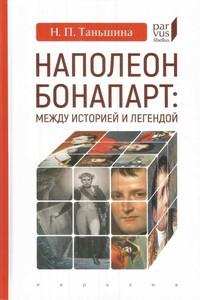
Наполеон притягивает и отталкивает, завораживает и вызывает неприятие, но никого не оставляет равнодушным. В 2019 году исполнилось 250 лет со дня рождения Наполеона Бонапарта, и его имя, уже при жизни превратившееся в легенду, стало не просто мифом, но национальным, точнее, интернациональным брендом, фирменным знаком. В свое время знаменитый писатель и поэт Виктор Гюго, отец которого был наполеоновским генералом, писал, что французы продолжают то показывать, то прятать Наполеона, не в силах прийти к окончательному мнению, и эти слова не потеряли своей актуальности и сегодня.
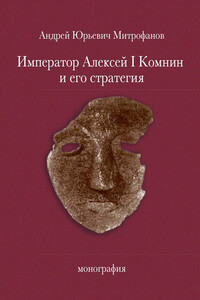
Монография доктора исторических наук Андрея Юрьевича Митрофанова рассматривает военно-политическую обстановку, сложившуюся вокруг византийской империи накануне захвата власти Алексеем Комнином в 1081 году, и исследует основные военные кампании этого императора, тактику и вооружение его армии. выводы относительно характера военно-политической стратегии Алексея Комнина автор делает, опираясь на известный памятник византийской исторической литературы – «Алексиаду» Анны Комниной, а также «Анналы» Иоанна Зонары, «Стратегикон» Катакалона Кекавмена, латинские и сельджукские исторические сочинения. В работе приводятся новые доказательства монгольского происхождения династии великих Сельджукидов и новые аргументы в пользу радикального изменения тактики варяжской гвардии в эпоху Алексея Комнина, рассматриваются процессы вестернизации византийской армии накануне Первого Крестового похода.
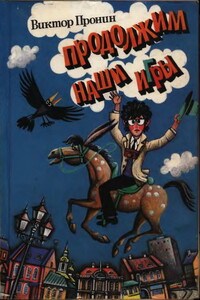
Виктор Пронин пишет о героях, которые решают острые нравственные проблемы. В конфликтных ситуациях им приходится делать выбор между добром и злом, отстаивать свои убеждения или изменять им — тогда человек неизбежно теряет многое.
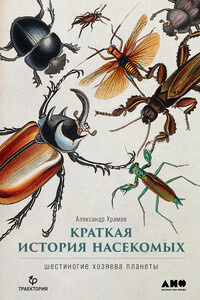
«Любая история, в том числе история развития жизни на Земле, – это замысловатое переплетение причин и следствий. Убери что-то одно, и все остальное изменится до неузнаваемости» – с этих слов и знаменитого примера с бабочкой из рассказа Рэя Брэдбери палеоэнтомолог Александр Храмов начинает свой удивительный рассказ о шестиногих хозяевах планеты. Мы отмахиваемся от мух и комаров, сражаемся с тараканами, обходим стороной муравейники, что уж говорить о вшах! Только не будь вшей, человек остался бы волосатым, как шимпанзе.
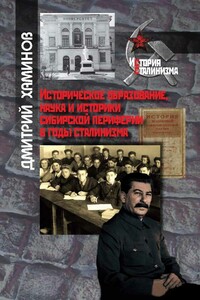
Настоящая монография посвящена изучению системы исторического образования и исторической науки в рамках сибирского научно-образовательного комплекса второй половины 1920-х – первой половины 1950-х гг. Период сталинизма в истории нашей страны характеризуется определенной дихотомией. С одной стороны, это время диктатуры коммунистической партии во всех сферах жизни советского общества, политических репрессий и идеологических кампаний. С другой стороны, именно в эти годы были заложены базовые институциональные основы развития исторического образования, исторической науки, принципов взаимоотношения исторического сообщества с государством, которые определили это развитие на десятилетия вперед, в том числе сохранившись во многих чертах и до сегодняшнего времени.
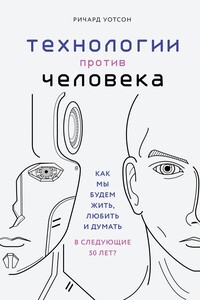
Эксперты пророчат, что следующие 50 лет будут определяться взаимоотношениями людей и технологий. Грядущие изобретения, несомненно, изменят нашу жизнь, вопрос состоит в том, до какой степени? Чего мы ждем от новых технологий и что хотим получить с их помощью? Как они изменят сферу медиа, экономику, здравоохранение, образование и нашу повседневную жизнь в целом? Ричард Уотсон призывает задуматься о современном обществе и представить, какой мир мы хотим создать в будущем. Он доступно и интересно исследует возможное влияние технологий на все сферы нашей жизни.